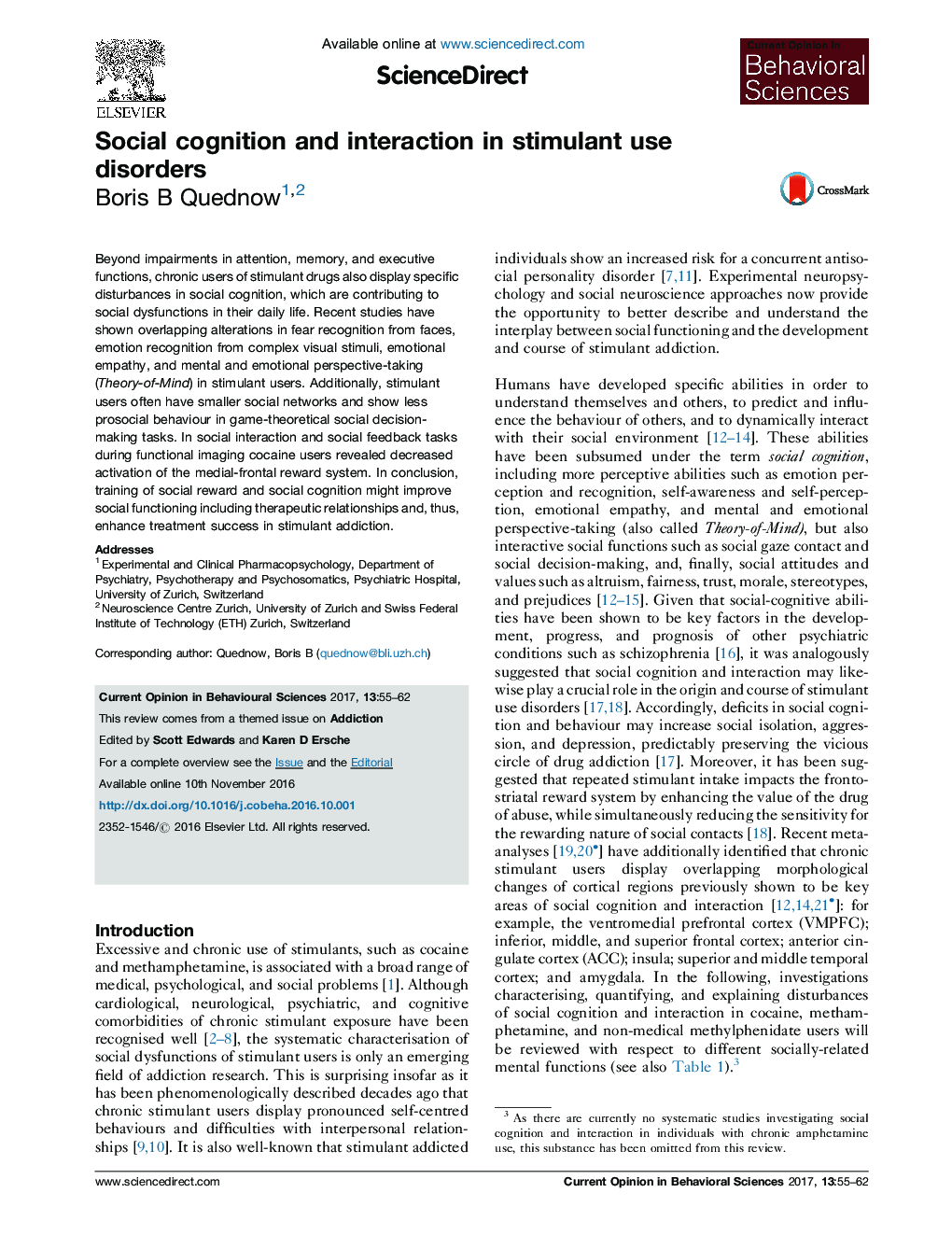| کد مقاله | کد نشریه | سال انتشار | مقاله انگلیسی | نسخه تمام متن |
|---|---|---|---|---|
| 6260303 | 1613077 | 2017 | 8 صفحه PDF | دانلود رایگان |
- Stimulant users display specific impairments in social cognition and interaction.
- Cocaine users show blunted responses of the reward system to social reinforcement.
- Social cognition and reward deficits conduce to social problems of stimulant users.
Beyond impairments in attention, memory, and executive functions, chronic users of stimulant drugs also display specific disturbances in social cognition, which are contributing to social dysfunctions in their daily life. Recent studies have shown overlapping alterations in fear recognition from faces, emotion recognition from complex visual stimuli, emotional empathy, and mental and emotional perspective-taking (Theory-of-Mind) in stimulant users. Additionally, stimulant users often have smaller social networks and show less prosocial behaviour in game-theoretical social decision-making tasks. In social interaction and social feedback tasks during functional imaging cocaine users revealed decreased activation of the medial-frontal reward system. In conclusion, training of social reward and social cognition might improve social functioning including therapeutic relationships and, thus, enhance treatment success in stimulant addiction.
Journal: Current Opinion in Behavioral Sciences - Volume 13, February 2017, Pages 55-62
